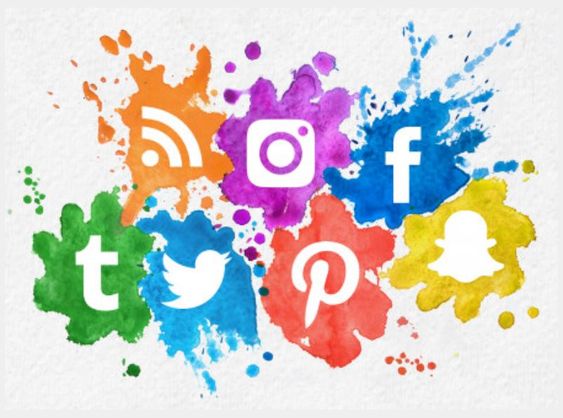
Essay #1
Social media pages are being widely used to share information globally. Through these pages, individuals from different locations all over the country are expressing their ideologies, sharing their ideas, and participating in political debates (Aldwairi & Alwahedi, 2018). Mass media has always influenced the social and political aspects of people’s lives. Since the People’s Choice release in 1944, communication experts have been interested in the association between mass media and the democratic processes. The intricacies of these interactions have multiplied due to the fast expansion of digital media during the last twenty years (Susser, Roessler, & Nissenbaum, 2019). Social media pages provide a perfect platform for democratic dialogues, but there have been instances whereby influential people have used this space to manipulate and control for their own gain.
With the availability of a neutral platform where people’s opinions could be heard irrespective of their ranks or power, governments globally are seeking to interact with their citizens through social media. Political leaders are widely interacting and making remarks on social media platforms. These politicians receive several messages daily to the point where they have qualified personnel to respond to the messages received. Responses provided by these communication experts are crafted so that they influence public opinion.
Social media platforms have given fresh life to the concept of participatory democracy, opening up new channels for individuals to interact with their governments (Vaccari, & Valeriani, 2021). Supporters of these digital media platforms argue that participatory democracy will help empower previously marginalized groups. However, even though there will be a few obstacles, such as digital media illiteracy, not everyone may access these platforms, and some individuals may be unwilling to participate.
Participatory democracy sounds like a good idea, but one of the widely asked questions is whether social media platforms are democratic, considering that it is now easier to spread false information. There is a lot of public manipulation that is going on on these sites. One of the occurrences that raised several questions on the integrity and support for democracy by these platforms is the suspension of Donald Trump’s social media accounts just days before his presidency ended.
Trump had violated the terms of using these social media pages earlier on, but the action was taken against him only towards the end of his presidency. Although it is obvious that this was no fair play, the chances are that social media platforms such as Twitter had turned a blind eye to his violations, maybe because he held a lot of power by then. There was a chance of both parties mutually benefitting. This is just one of the incidences where social media platforms have failed to uphold democracy.
Also, despite social media pages providing a platform where debates can be held, most debates are unbalanced. Therefore, assuming democratic equality in discussions held on social media platforms in developing nations, where illiteracy and the digital gap still exist, may not be realistic (Reisach, 2021). Furthermore, in these countries, some people have more resources and experience than others, thus allowing them to use social media platforms. Therefore, the quality of government-citizen engagements in these nations is significantly impacted by a lack of competency in digital media platforms.
There are countries where the internet is shut down whenever something terrible happens to prevent the spread of information regarding the incident. From one angle, this can be seen as an action to control the spread of false information, but on the other hand, this violates the citizens’ freedom to free speech. This can also prevent the public from knowing what is going on. Nevertheless, social media platforms have positively impacted education, agriculture, and public health. We can only speculate how well these government-citizen interactions via digital media platforms are working without sufficient research evidence.
The current proliferation of false news and digital misinformation has made it critical for scholars to research to understand better the impact digital media has on democracy and governance worldwide. Social media platforms such as Facebook and Google are accused of manipulating public opinion and the democratic processes without proper checks and balances. This makes traditional media like radio, newspapers, and television seem more accountable (Schleffer & Miller, 2021). The rise of social media platforms appears to have shifted power to users, who can now interact with a large audience and control democratic processes and governance processes.
It is critical to find a means to keep rational talks that support democratic values. However, this should be done on social media and in the community to bridge the ideological division between supporters and opponents of various political parties (KhosraviNik, 2018). On the other hand, the citizens must address their own confirmation biases to succeed. All sides must show a desire to seek out perspectives that go beyond their ideas and ideologies. One method to accomplish this is to actively seek out contradictory facts about topics and policies, engage people in meaningful discussion, and listen to the perspectives of those affected by a policy. This is particularly important when dealing with people with different perspectives and cultures.
References
Aldwairi, M., & Alwahedi, A. (2018). Detecting fake news in social media networks. Procedia Computer Science, 141, 215-222.
KhosraviNik, M. (2018). Social media techno-discursive design, effective communication and contemporary politics. Fudan Journal of the Humanities and Social Sciences, 11(4), 427-442.
Reisach, U. (2021). The responsibility of social media in times of societal and political manipulation. European Journal of Operational Research, 291(3), 906-917.
Schleffer, G., & Miller, B. (2021). The Political Effects of Social Media Platforms on Different Regime Types (Summer 2021). Texas National Security Review.
Susser, D., Roessler, B., & Nissenbaum, H. (2019). Online manipulation: Hidden influences in a digital world. Geo. L. Tech. Rev., 4, 1.
Vaccari, C., & Valeriani, A. (2021). Outside the bubble: Social media and political participation in western democracies. Oxford University Press.


You May Also Like
